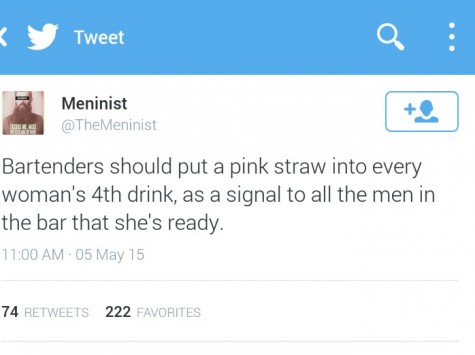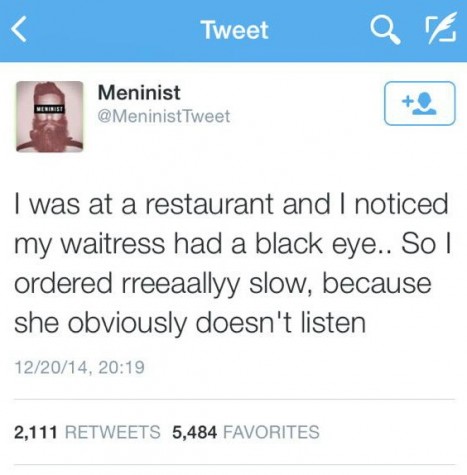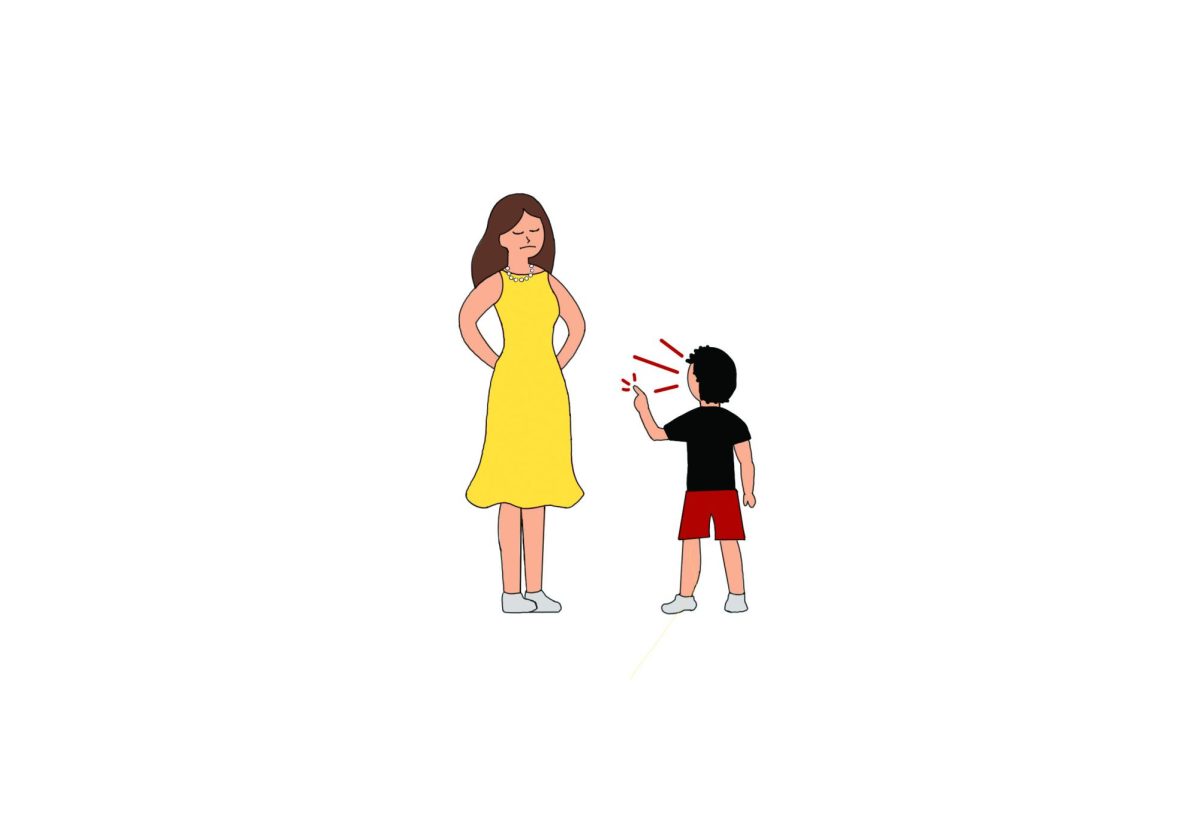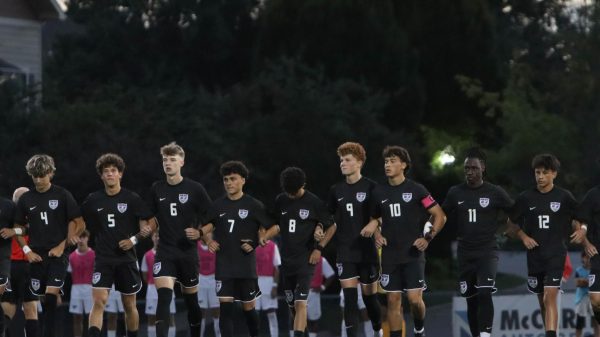The truth behind the ‘meninism’ trend
May 6, 2015
As a student, a writer and a learning journalist, I naturally see things on a daily basis that I disagree with, strongly believe in or otherwise want to discuss. It only makes sense then, that I value the First Amendment immensely for the power it gives our opinions and our voices. At school on Monday, my friend sent me a picture of a group of underclassman boys sporting “meninist” gear, and I practiced my right to free speech by tweeting the picture with a question regarding why these boys didn’t get dress coded. In my fervor to practice my rights, I was short sighted to the fact that these boys were doing almost exactly what I was doing by calling them out on Twitter – they were expressing themselves and their views through clothes instead of words. They have a right to wear the meninist shirts, and I am not here to squash that. I am, however, concerned that few are actually familiar with what they support when they support meninism.
What started as somewhat of a joke in response to women requesting social, political and economic equality, meninism has grown into a cultural phenomenon, complete with twitter accounts that, when combined, reach nearly one million followers. As women became more vocal about the effects of unrealistic expectations of women in media, the new group of meninists made mocking comments about the unrealistic expectations of men in “Magic Mike.” Kind of immature, but not entirely harmful. Except it got worse.
The Twitter account most notably associated with the movement, @MeninistTweet, makes extremely offensive slurs about rape and domestic violence and makes it crystal clear where women “belong.” You might be annoyed by feminists requesting women’s rights, but it’s pretty hard to disagree that rape and violence are real and they hurt real people. People – not feminists. People you go to school with, your friend’s mom, people around you in line at McDonald’s, people whose whole lives are affected by it. When you wear a meninist shirt, you might not realize what you’re saying to those people you pass. You’re saying that, despite never experiencing any of it firsthand, you think it’s a woman’s fault if she’s abused. You’re saying you think it’s funny that she was hurt and completely violated in ways you yourself can’t truly understand.
If laughing about violence against women is something you’re into, however, wearing a shirt that says so is something you have every right to do.
With every choice we make to voice our beliefs, there will inevitably be reactions. When you choose to wear a meninist shirt, your clothing choice conveniently does all the talking for you. I am sure a lot of those who wear the shirts do not do so to be hurtful; I believe many simply do not understand everything meninism means. It might be a joke between you and your friends, but you embody all the things meninism says when you wear a shirt – not just the jokes you like. I would hope, the next time you think to put on a meninist shirt, you think of your little sister, your mother, your math teacher or your girlfriend, and what you are saying to each and every one of them.














Chipwhitle • Nov 12, 2015 at 3:33 pm
I find it interesting that you consider the very valid examples of objectification of Magic Mike, Chippendales, GQ (take your pick) as immature… and even go so far as to say it was harmless, as if pointing it out was meant to harm something or someone.
Otherwise, you actually kept the article fairly objective… but you dropped the ball on that one.
Shawn • May 7, 2015 at 9:28 pm
It is literally just a joke. I don’t think there is a single man following the Twitter account who believe that women should get raped or stay in the kitchen.
Lindsay Somberg • May 6, 2015 at 10:25 pm
I very much appreciate this article and think that is doing a lot of good informing to the boys at northwest. However I would like to voice my opinion on the subject of domestic violence and sexual assault. You made these issues an issue of gender in this article and acknowledged them as only woman’s issues. However this is sadly not the case at all. When we think of domestic violence we often only associate it to physical abuse however it includes verbal, emotional and many other forms of abuse. Statistics show that woman and teen girls are just as likely or more likely to be the perpetrator in an unhealthy relationship through verbal and emotional abuse. It is not only a woman’s issue and the more we make it one the more we continue to ignore the very real male victims of this abuse. It is very common for people to associate feminism and gender equality to the issues of domestic violence but while they do effect each other they can not be simply clumped together. Sorry this was so long just had to say my piece on it all. I would encourage you to include the perspective of male victims and woman abusers the next time you address these issues. Thank you.
Na • May 6, 2015 at 9:37 pm
Obvious feminist (no offense)
All guys • May 6, 2015 at 3:03 pm
This is [expletive removed] stupid.